Best Juices For Constipation: 8 Effective Homemade Remedies
Clearing out your tummy could be as easy as drinking some healthy juices.
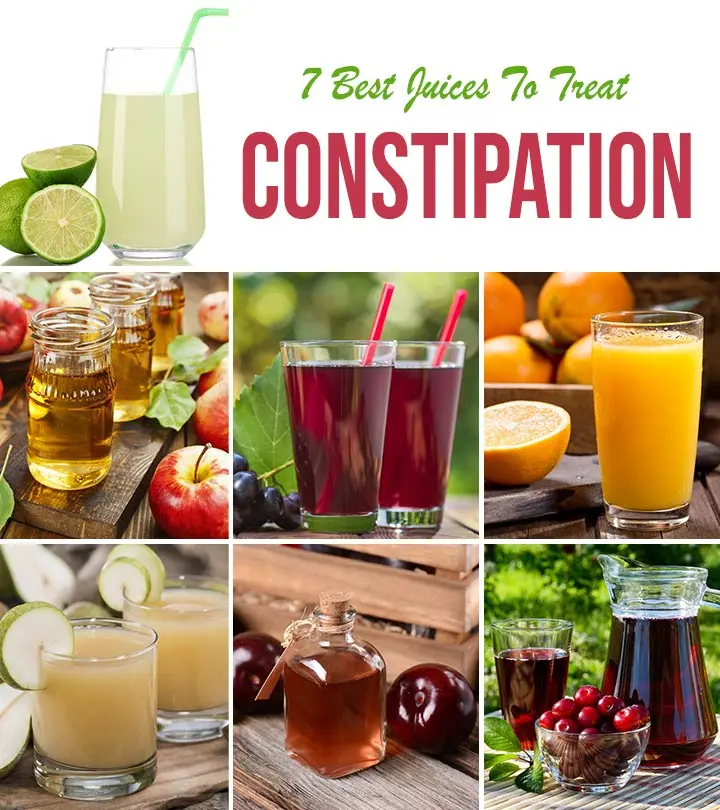
Image: Shutterstock
Constipation is a medical condition in which the bowel movement is slow, and passing stools becomes difficult. However, it is not a life-threatening condition and can be treated by making lifestyle changes (1).
Laxatives can help relieve the condition, but the relief is short-term, and there may be a few side effects (2). You can try out some home remedies to treat this problem, such as drinking juice. Wondering what the best juices for constipation are? In this article, we will discuss homemade juices to treat constipation, their dosage, and benefits. Read on!
In This Article
Why Drink Juices For Constipation
- Juices are loaded with vitamins, minerals, and dietary fiber and have a high water content (3). They can keep you hydrated and provide your body with the required dietary fiber.
- Soluble fiber helps to retain water in the stool and makes it softer. This helps in better bowel movement. Insoluble fiber adds bulk to the fecal matter, which quickens the bowel movement (3). According to the American Dietetic Association, the fiber intake should be 20-35 g/day for adults and 5 g/day for children (4).
- Sorbitol, a carbohydrate present in fruit juices, helps in facilitating rapid bowel movement, especially among children (3).
Key Takeaways
- Grape juice can help relieve constipation by hydrating the body and supporting easy passage of stools.
- The soluble fibers in many natural juices can help promote better bowel movement during constipation.
- Fennel seed powder can help prevent constipation by maintaining water in the stools.
- The high fiber content of cherries make them an excellent choice for treating constipation.
8 Homemade Juices To Treat Constipation
1. Apple Juice For Constipation
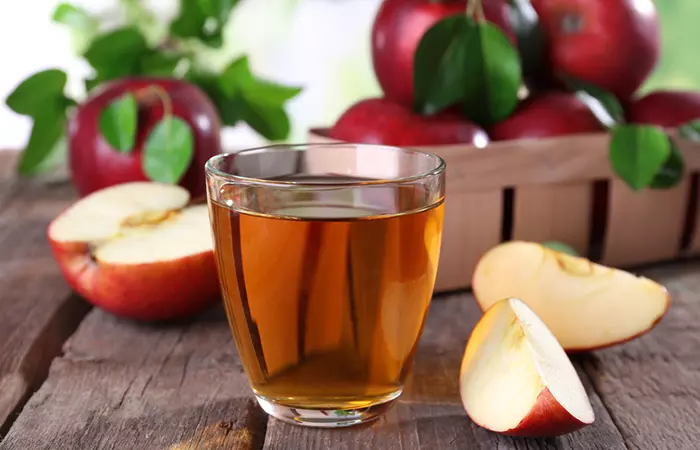
Ingredients
- 1 apple, seeds removed
- ½ teaspoon fennel powder
- ½ cup water
How To Prepare
- Roughly chop the apples and toss them into a blender.
- Add the water and give it a spin.
- Pour out the juice into a glass.
- Add the fennel powder and stir well.

Why This Works
- Apples are rich in fiber, minerals, and vitamins (4). Having an apple as a whole or in the juice form can help prevent constipation (3).
- Fennel seed powder is rich in dietary fiber (5). It helps in retaining water in the stool, facilitating smooth bowel movement and preventing constipation (6).
2. Grape Juice For Constipation
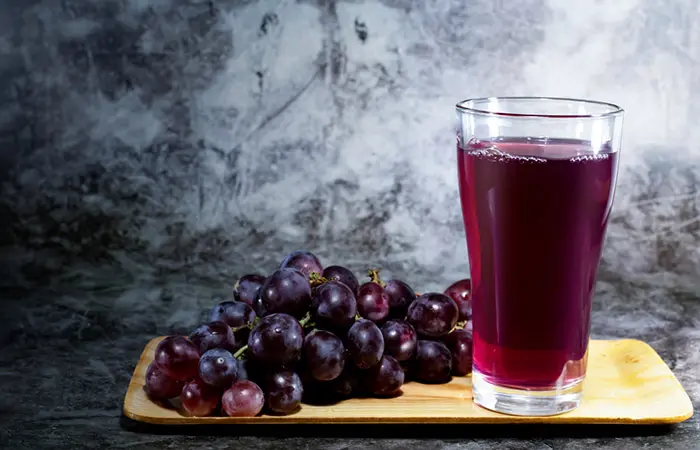
Ingredients
- Freshly picked black grapes
- ½ inch ginger
- Black salt to taste
- ½ cup water or as per the desired consistency
How To Prepare
- Destem the fresh grapes and wash them properly.
- Add grapes, ginger, and water to a juicer.
- Give it a spin. Pour it in a glass without straining it.
- Sprinkle black salt as required.
Why This Works
- Grapes contain a lot of water and fiber, which is important to hydrate the body and bulk up the stool (3), (7).
- Grapes contain sorbitol, a sugar alcohol that holds more water and facilitates easy passage of stools. It is a cost-effective natural laxative to treat constipation (8).
3. Orange Juice For Constipation
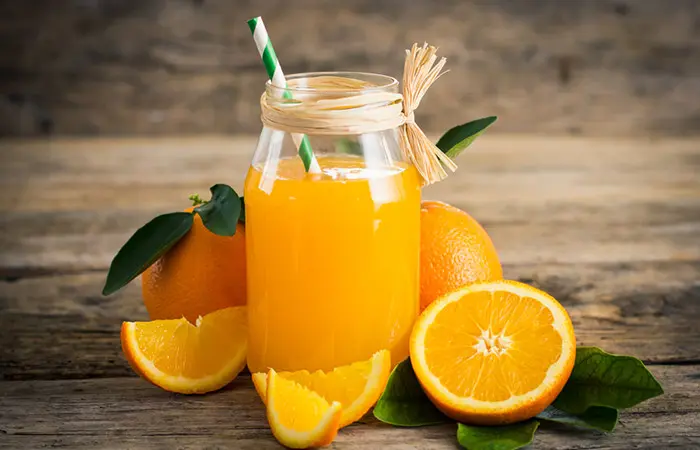
Ingredients
- 1 cup roughly chopped oranges
- A pinch of black salt
How To Prepare
- Toss the oranges into the blender or Nutribullet.
- Give it a spin.
- Pour the juice into a glass.
- Add a pinch of black salt and stir well before drinking.
Why This Works
- Oranges are a rich source of vitamin C, minerals, and dietary fiber (9). Incorporating orange juice into your diet can also be beneficial, as it helps relieve constipation naturally due to its high fiber content.
- The dietary fiber helps to retain water and adds bulk to the stool, thereby stimulating bowel movement (3).
4. Pear Juice For Constipation
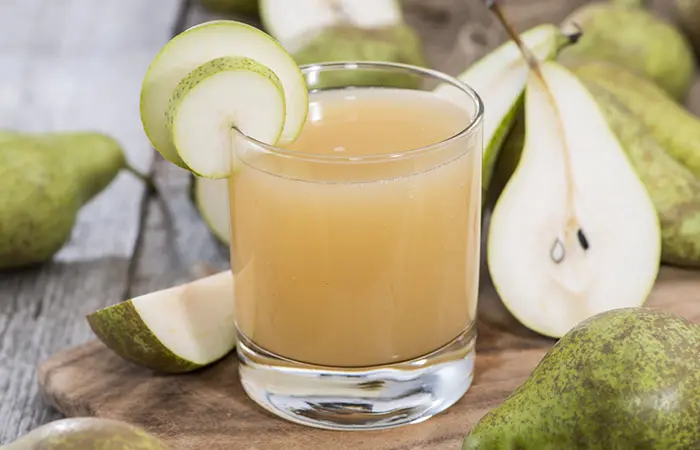
Ingredients
- 2 pears, pith removed
- 2 teaspoon lime juice
- A pinch of black salt
How To Prepare
- Roughly chop the pears and toss them into the blender.
- Give it a spin and pour the juice into a glass.
- Add lime juice and a pinch of black salt.
- Stir well before drinking.
Why This Works
- Pears are also rich in fiber (10).
- They contain almost twice the amount of sorbitol as in prunes. Sorbitol helps in facilitating bowel movement (11).
Jordan Anthony, a Certified Nutritionist, says, “Pear juice is especially gentle on the system. It’s recommended by pediatricians for babies, as well as for adults.”
5. Prune Juice For Constipation
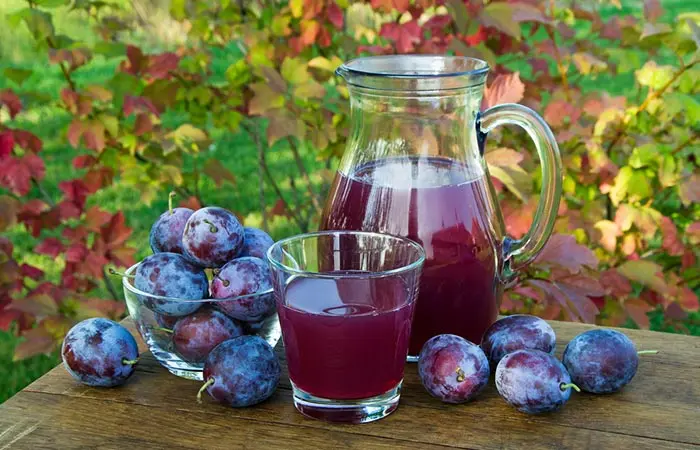
Ingredients
- 5-6 prunes
- ½ teaspoon honey
- ½ teaspoon cumin powder
- 1 cup warm water
How To Prepare
- Soak the prunes in a cup of warm water for 5 minutes.
- As the prunes soften, remove the pith and toss them into a blender along with the water.
- Add honey and cumin powder.
- Give it a spin.
- Pour the juice into a glass and relish the drink.
Why This Works
- Drinking prune juice for constipation may help as it contains dietary fiber and sorbitol that help quicken bowel movements (3), (11).
- Cumin helps maintain good gut health and is great as a seasoning for prune juice (12).
6. Cherry Juice For Constipation
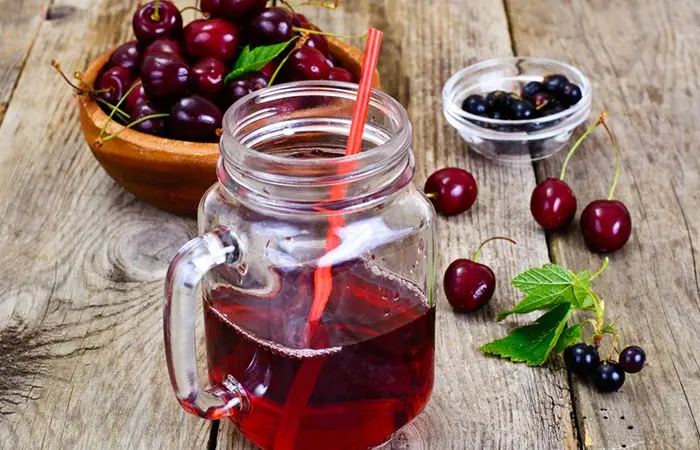
Ingredients
- 1 cup fresh cherries
- 2 teaspoons lime juice
- ½ cup water
- Black salt to taste
How To Prepare
- Rinse the cherries well and remove the seeds.
- Blend the cherries in a blender by adding the desired amount of water.
- Sprinkle black salt to taste.
Why This Works
Cherries contain polyphenols, water, and fiber (13). The fiber content of cherries helps to add bulk to stool and makes evacuation smooth (3).
7. Lemon Juice For Constipation
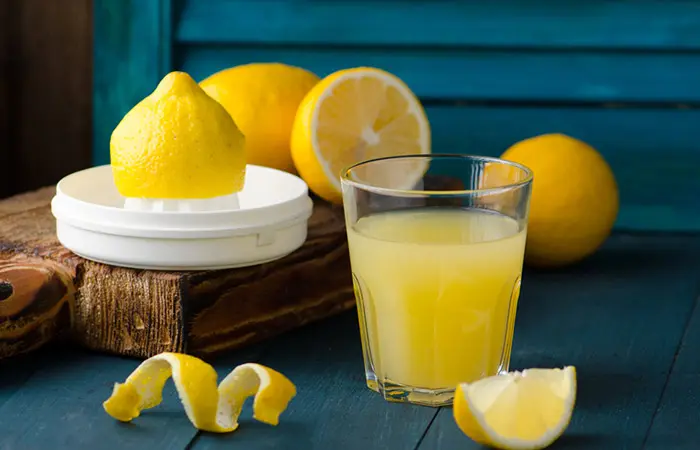
Ingredients
- ½ lemon
- 1 cup warm water
- 1 teaspoon honey
- ½ teaspoon cumin powder
How To Prepare
- Add lemon juice, honey, and cumin powder to a cup of warm water.
- Stir well before drinking.
Why This Works
- Lemon is rich in fiber and vitamin C (14). They not only help treat constipation but also boost the immune system.
- Cumin powder is extremely helpful in keeping the digestive system healthy (12).
8. Cranberry Juice For Constipation
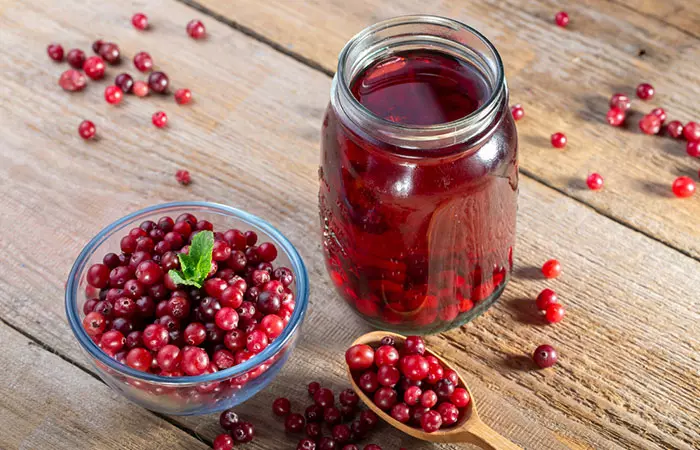
Ingredients
- 1 cup of fresh or frozen cranberries
- 1 orange
- ½ cup of water
- 1 teaspoon of organic honey (optional)
How To Prepare
- Place the cranberries, peeled orange, and water in a food processor.
- Blend the ingredients until you get a smooth mixture.
- Add honey to it if you do not like the sourness of cranberries.
- Strain the juice using a cheesecloth or a mesh strainer.
- Pour it into a glass and enjoy!
Why This Works
Cranberry juice may help increase the good bacteria in your gut and significantly improve constipation in those with obesity (15).
Raw, unsweetened cranberries contain 87% of water and 3.6 gm of fiber (16). Fruit juices with fiber and water may help relieve constipation (3)
Juice Dosage For Constipation
You can have one cup of juice every day. Try to include the pulp and do not add extra sugar. You can add spices, such as cumin and fennel. These may aid in flushing out toxins from the colon. Drink the juice for constipation first thing in the morning every day.
Though these juices are helpful in treating constipation, do take a look at the possible side effects.
Side Effects
There are no possible side effects of drinking fruit juices, but you should be aware of dosage.
Always use fresh homemade juice as canned or processed juice contains preservatives and added sugar (17). This is not recommended for people with diabetes.
The excess of fructose from fruit juices may lead to cardiovascular diseases, nonalcoholic fatty liveri A general term for liver problems brought on by an accumulation of extra fat that affects people who drink minimal to no alcohol. , diabetes, and malabsorption syndromei An illness that hinders nutrients from being absorbed through the small intestine and may be brought on by an infection or medicine. (18).
If you experience constipation regularly, try to change your diet. Here is what you should eat (19).
What To Eat To Treat Constipation
- Fruits – Plum, pear, watermelon, orange, lime, lemon, and apple.
- Vegetables – Kale, spinach, broccoli, carrot, radish, beetroot, and celery.
- Proteins – Garbanzo beans and black beans.
- Seeds And Nuts – Cumin seeds, fennel seeds, chia seeds, pumpkin seeds, flaxseed, and soaked almonds.
- Fats And Oils – Olive oil
- Beverages – Water, coconut water, buttermilk, fresh fruit juices, and detox water.
Useful Tip
Consume a lot of fiber-containing foods and keep yourself hydrated. Also, if possible, drink a glass of warm water as soon as you wake up, even before drinking your morning juice.
You can also add other fruits, such as grapefruit, pineapple, mango, kiwi, and papaya to enhance the flavor of your juices. Moreover, anecdotal evidence suggests that adding probiotics, aloe vera, cucumber, and psyllium husk to your diet can help relieve constipation.
Here are the signs and symptoms of constipation (20).
Symptoms Of Constipation
- Slower bowel movement
- Abdominal pain
- Hardened stool
- Not feeling the urge to go to the washroom
- Bloating
- Difficulty in passing stool
- Vomiting sensation
 Trivia
TriviaNow that you have confirmed whether you have constipation or not, let’s get to the root of the problem. Here is a list of the causes of constipation (20).
What Causes Constipation?
- Not drinking enough water or fluids
- Not eating enough dietary fiber
- Irritable bowel syndromei A collection of digestive system symptoms, mainly due to an intestinal problem that causes diarrhea, constipation, and stomach pain.
- Colon cancer
- Leading a sedentary lifestyle
- Excessive consumption of alcohol
- Stress
- Pregnancy
- Certain medications, such as antidepressants and antacids
- Sudden change in diet or activity level
- Spinal cord injury
- Multiple sclerosisi A condition in which the immune system attacks the nerves' protective layer and results in visual loss or poor movements.
- Stroke
- Weak pelvic muscles
- Dyssynergiai An issue preventing the muscles from working together correctly, generally caused by a problematic brain-spinal cord connection.
- Diabetes
- Hypothyroidismi A disorder in which the thyroid gland does not generate adequate thyroid hormone, affecting metabolism, heart rate, and body temperature. or hyperthyroidismi A disorder in which the thyroid gland overproduces the thyroid hormone, causing unwanted weight loss, abnormal heart rate, and irritability.
Many of us tend to ignore our health problems. If you think that constipation is a minor problem, take a look at the next section to know what could happen if you ignore it.
Adverse Outcomes Of Constipation
While occasional episodes of constipation are not a cause for worry, regularly experiencing constipation can pose health risks if you do not address it immediately:
- Anal fissuresi A tiny rip in the anus developed due to difficult bowel movements, leading to discomfort and bleeding when passing bowel movements.
- Rectal prolapse
- Swollen veins in the anus
- Fecal impactioni Long-term constipation causes firm stool to become trapped in the lower colon or rectum, which is extremely painful.
- Bowel stricturei Intestinal blockage caused by a narrowing of the intestines as a result of long-term inflammation.
- Colon cancer
Other factors can aggravate the risk of constipation. Here is what you should be aware of
Constipation Risk Factors
The following individuals are at risk of constipation (20):
- People on medications, such as narcotics, blood pressure medicines, antidepressants, and antacids.
- Women
- Elderly adults
- Individuals with eating disorders
- Individuals dealing with depression
- People who do not get enough sleep
- People who do not get enough physical activity
- People who do not drink enough water
Judy, an experienced nurse in pediatrics, highlights the prevalence of constipation in children, emphasizing its link to tummy aches in her blog. She writes, “As a healthcare professional with years of experience, I’ve encountered many cases of childhood constipation, and I recommend open communication, dietary adjustments, and practical remedies like glycerin suppositories to address this common issue (i)” .
 Quick Tip
Quick TipInfographic: Top 5 Effective DIY Juices For Constipation
Constipation is accompanied by stomach discomfort and slow bowel movements. While it is not a life-threatening condition, it can be quite annoying. The good news is that you can ease it by making simple lifestyle changes and consuming some delicious homemade juices. Scroll down to the infographic below for more information.
Some thing wrong with infographic shortcode. please verify shortcode syntaxConstipation is a condition characterized by slow bowel movements. It can be uncomfortable, and many people may experience this condition. It is important to treat this problem in its earlier stages to prevent further complications. You can try out natural remedies like homemade juices to treat constipation. They are rich in water content, fiber, vitamins, and minerals that help improve your bowel movements. But if you still experience this problem after consuming fruit juices, immediately consult your doctor.
Frequently Asked Questions
Is it safe to drink cranberry juice for constipation?
According to Anthony, “Yes, it’s safe to drink cranberry juice for constipation. While some compounds in cranberry juice can become problematic in large doses, this is usually only a real issue with cranberry-based supplements.”
What are the benefits of drinking mango juice for constipation?
Anthony says, “Mango juice is rich in fiber and highly nutritious, making it great at promoting regular bowel movements as well as overall health.”
When should you go to the hospital for constipation?
If you have bleeding stools or anal fissures or have not had stool elimination for 15 days, you should go to the hospital and consult a specialist.
How long is too long to be constipated?
If you are finding it difficult to pass stool for more than 7-8 days, it should be considered chronic constipation.
Does carrot juice make you poop?
Carrot is loaded with fiber, which is important to add bulk to stool and help in proper evacuation.
Is yogurt good for constipation?
Yes, yogurt contains good bacteria that promote gut health and helps relieve constipation and maintain regular bowel movement (22).
Illustration: Best Juices To Treat Constipation

Image: Dall·E/StyleCraze Design Team
Learn about the 3 great juices that can help reduce constipation and restore your digestive system! Check out this video to learn how to regain your health using easy home remedies.
Personal Experience: Source
StyleCraze's articles are interwoven with authentic personal narratives that provide depth and resonance to our content. Below are the sources of the personal accounts referenced in this article.
i.Constipation/The poop, the whole poop, nothing but the poophttp://nursejudynvp.blogspot.com/search?q=constipation
References
Articles on StyleCraze are backed by verified information from peer-reviewed and academic research papers, reputed organizations, research institutions, and medical associations to ensure accuracy and relevance. Read our editorial policy to learn more.
- The lowdown on constipation, Harvard Health Publishing, Harvard Medical School.
https://www.health.harvard.edu/digestive-health/the-lowdown-on-constipation - Adverse effects of laxatives, Diseases of the colon and rectum, US National Library of Medicine, National Institutes of Health.
https://pubmed.ncbi.nlm.nih.gov/11535863/ - Diets for constipation, Pediatric Gastroenterology, Hepatology & Nutrition, US National Library of Medicine, National Institutes of Health.
https://www.ncbi.nlm.nih.gov/pmc/articles/PMC4291444/ - Position of the American Dietetic Association: health implications of dietary fiber, Journal of The American Dietetic Association, US National Library of Medicine, National Institutes of Health.
https://pubmed.ncbi.nlm.nih.gov/12146567/ - Nutritive value of spices, fennel seed, U.S. Department of Agriculture.
https://fdc.nal.usda.gov/fdc-app.html#/food-details/171323/nutrients - Foeniculum vulgare Mill: A Review of Its Botany, Phytochemistry, Pharmacology, Contemporary Application, and Toxicology, BioMed Research International, US National Library of Medicine, National Institutes of Health.
https://www.ncbi.nlm.nih.gov/pmc/articles/PMC4137549/ - Nutritive value of Grapes, red or green, U.S. Department of Agriculture.
https://fdc.nal.usda.gov/fdc-app.html#/food-details/174683/nutrients - Cost-effective treatment of constipation in the elderly: a randomized double-blind comparison of sorbitol and lactulose, The American Journal of Medicine, US National Library of Medicine, National Institutes of Health.
https://pubmed.ncbi.nlm.nih.gov/2122724/ - Nutritive value of Oranges, raw, navels, U.S. Department of Agriculture.
https://fdc.nal.usda.gov/fdc-app.html#/food-details/746771/nutrients - Nutritive value of Pears, raw, U.S. Department of Agriculture.
https://fdc.nal.usda.gov/fdc-app.html#/food-details/169118/nutrients - Medical Management of Constipation, Clinics in Colon and Rectal Surgery, US National Library of Medicine, National Institutes of Health.
https://www.ncbi.nlm.nih.gov/pmc/articles/PMC3348737/ - Cumin Extract for Symptom Control in Patients with Irritable Bowel Syndrome: A Case Series, Middle East Journal of Digestive Diseases, US National Library of Medicine, National Institutes of Health.
https://www.ncbi.nlm.nih.gov/pmc/articles/PMC3990147/ - Nutritive Value of Cherries, sweet, raw, U.S. Department of Agriculture.
https://fdc.nal.usda.gov/fdc-app.html#/food-details/171719/nutrients - Nutritive value of Lemons, raw, without peel, U.S. Department of Agriculture.
https://fdc.nal.usda.gov/fdc-app.html#/food-details/167746/nutrients - Effect of cranberry juice supplementation on the gut microbiome and inflammatory markers: a randomized, double-blind, placebo-controlled study in overweight individuals.
https://www.ncbi.nlm.nih.gov/pmc/articles/PMC9193896/ - Cranberry: chemical composition, antioxidant activity and impact on human health: overview
https://www.ncbi.nlm.nih.gov/pmc/articles/PMC8911768/ - Sugary Drinks, Harvard T.H. Chan School of Public Health.
https://nutritionsource.hsph.harvard.edu/healthy-drinks/sugary-drinks/ - Is fructose bad for you? Harvard Health Publishing, Harvard Medical School.
https://www.health.harvard.edu/blog/is-fructose-bad-for-you-200705012507 - Eating, Diet & Nutrition for Constipation What should I eat and drink if I’m constipated? National Institute of Diabetes and Digestive And Kidney Diseases, US Department of Health and Human Services.
https://www.niddk.nih.gov/health-information/digestive-diseases/constipation/eating-diet-nutrition - Symptoms And Causes Of Constipation
https://www.niddk.nih.gov/health-information/digestive-diseases/constipation/symptoms-causes - Chronic constipation
https://www.ncbi.nlm.nih.gov/pmc/articles/PMC5976340/ - Modulatory Effects of Gut Microbiota on Constipation: The Commercial Beverage Yakult Shapes Stool Consistency
https://www.ncbi.nlm.nih.gov/pmc/articles/PMC6657925/
Read full bio of Rachelle Caves
- Jordan Anthony is a Registered Dietitian Nutritionist with over 6 years of experience. She was a public relations professional before she went back to the University of Southern California to get a Master's degree in Nutrition, Healthspan and Longevity. She is currently serving as the Senior Director of Nutrition at Ahara Corporation in Los Angeles, USA.
 Jordan Anthony is a Registered Dietitian Nutritionist with over 6 years of experience. She was a public relations professional before she went back to the University of Southern California to get a Master's degree in Nutrition, Healthspan and Longevity. She is currently serving as the Senior Director of Nutrition at Ahara Corporation in Los Angeles, USA.
Jordan Anthony is a Registered Dietitian Nutritionist with over 6 years of experience. She was a public relations professional before she went back to the University of Southern California to get a Master's degree in Nutrition, Healthspan and Longevity. She is currently serving as the Senior Director of Nutrition at Ahara Corporation in Los Angeles, USA.
Read full bio of Priyanka Sadhukhan
Read full bio of Arshiya Syeda
Read full bio of Payal Karnik







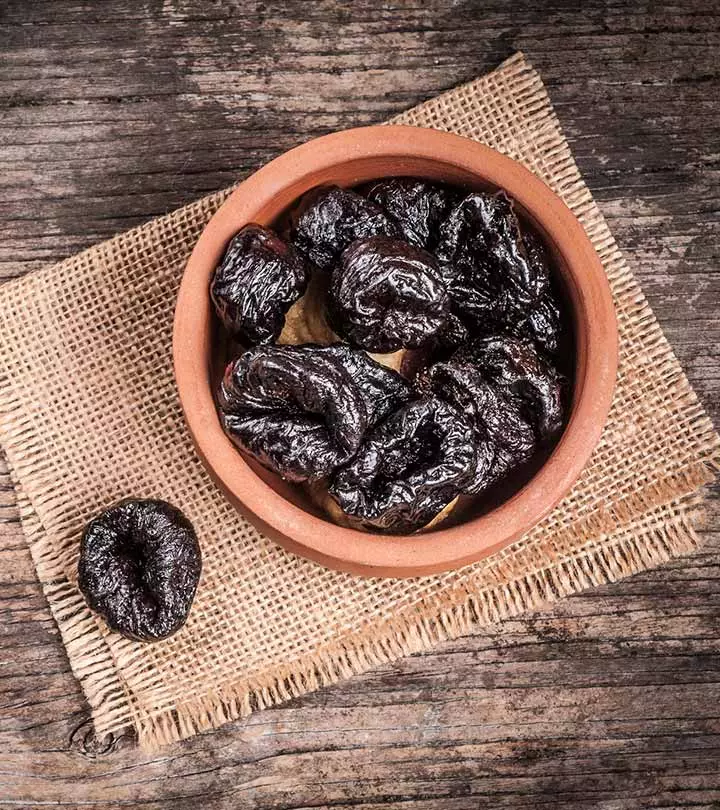
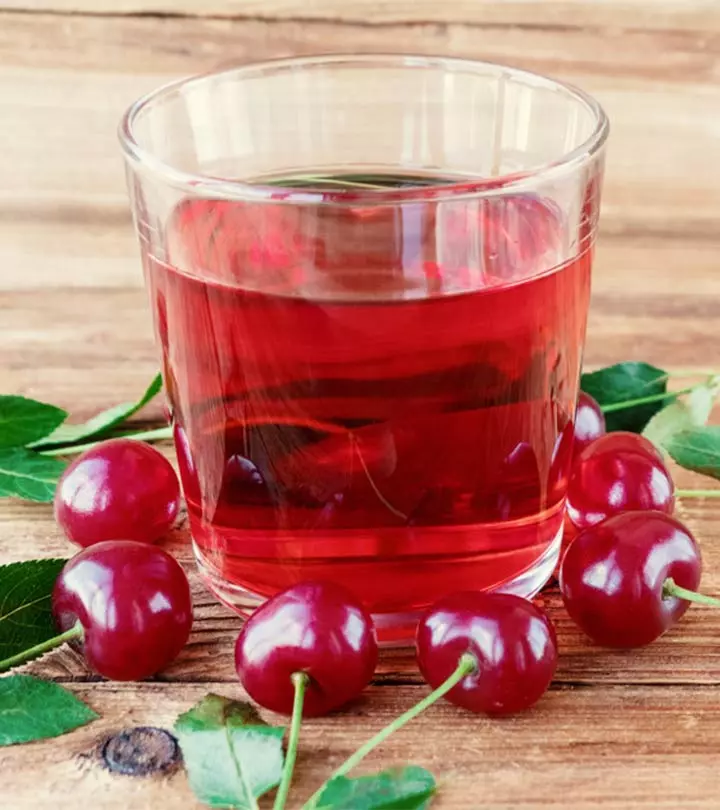
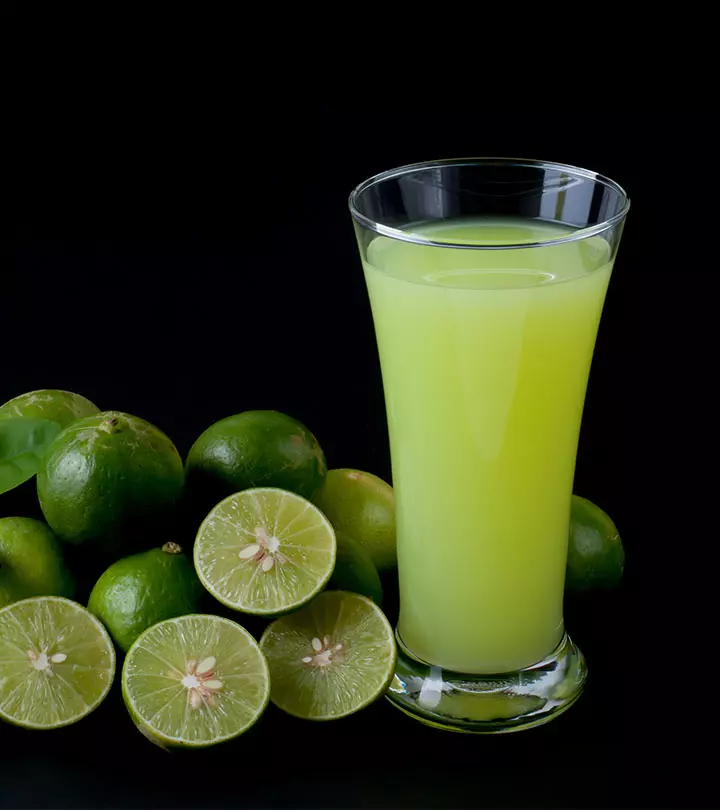
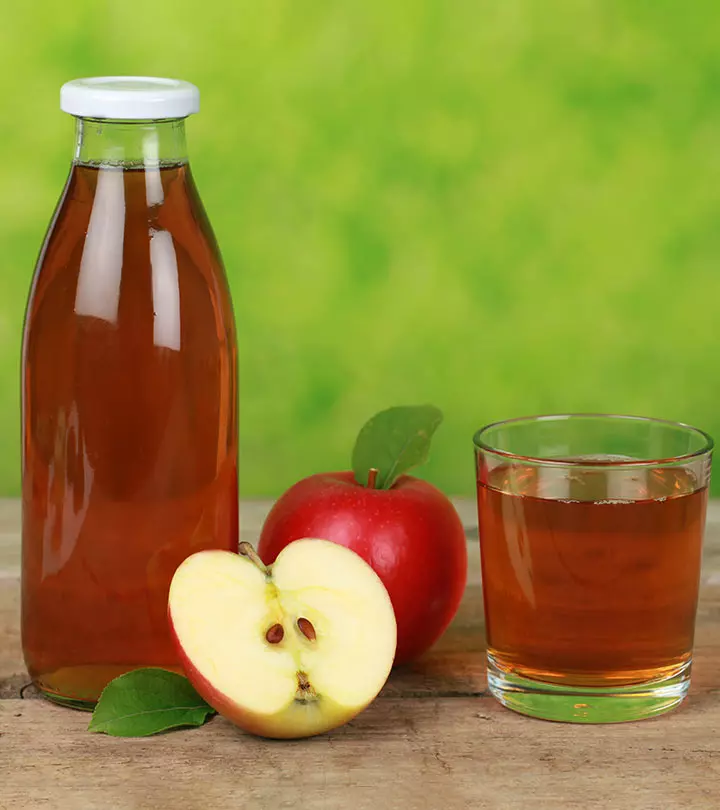
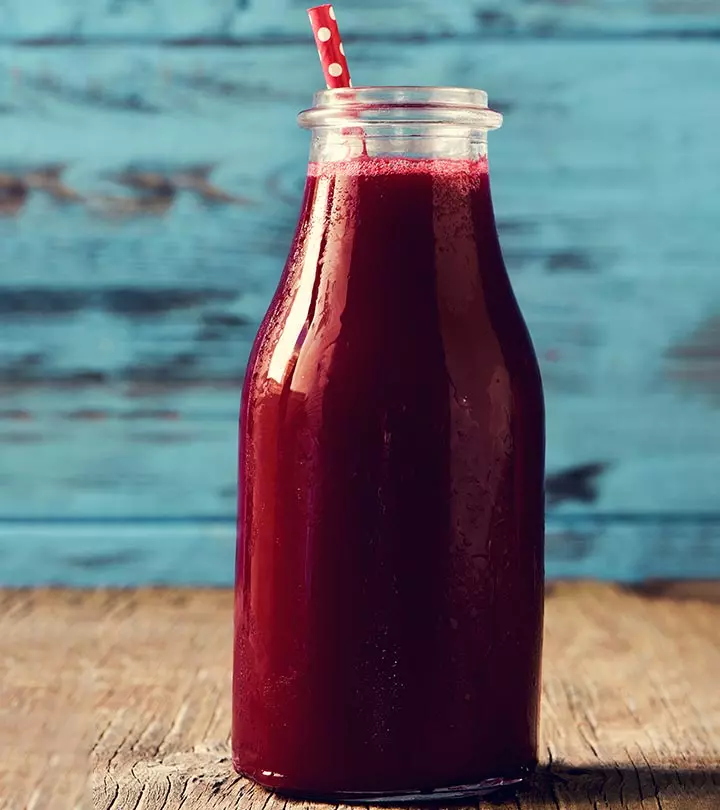
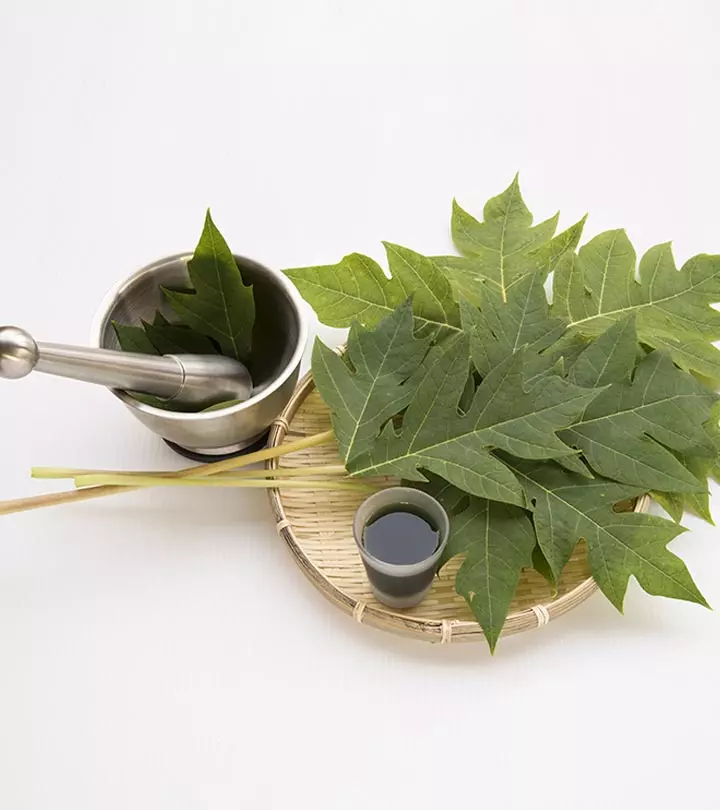
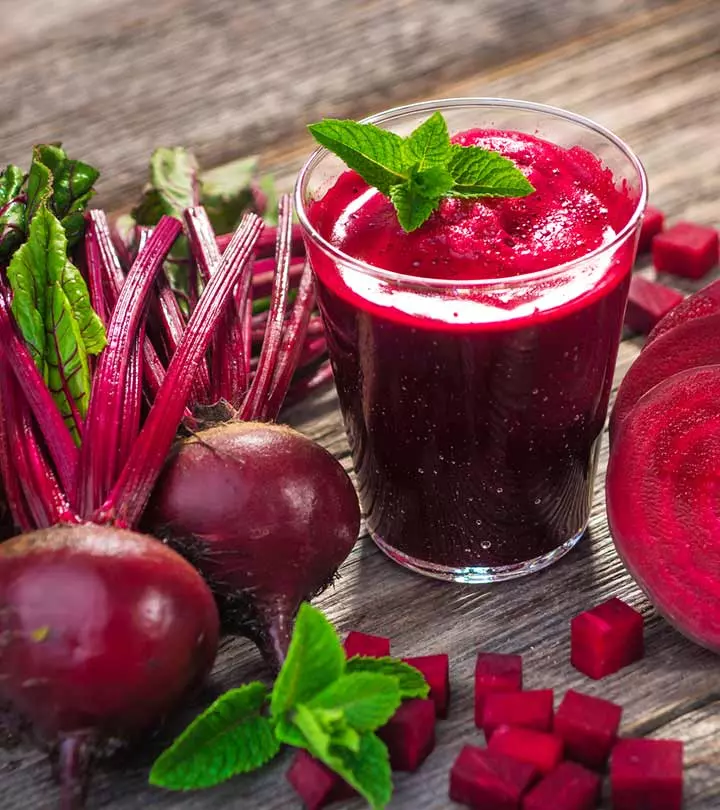



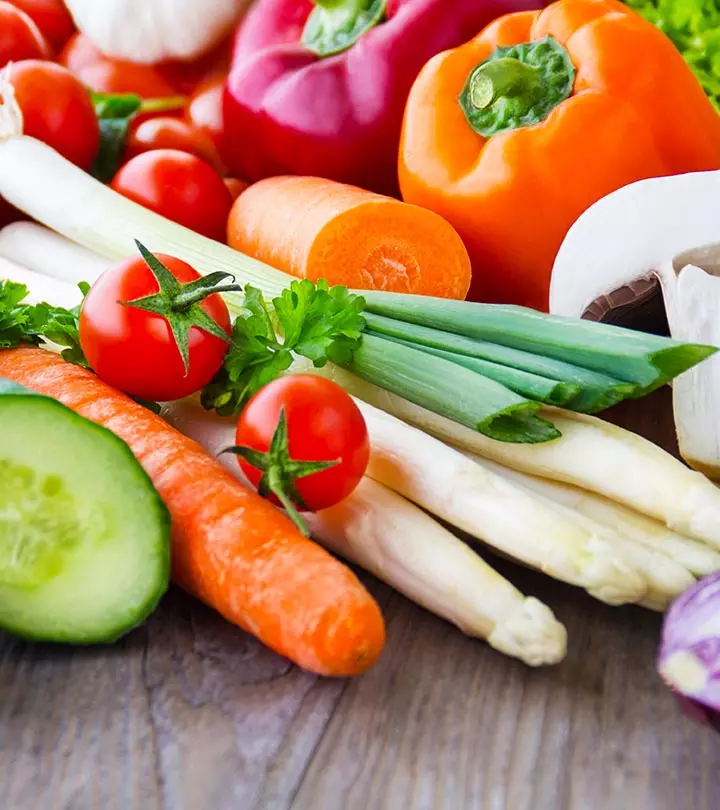


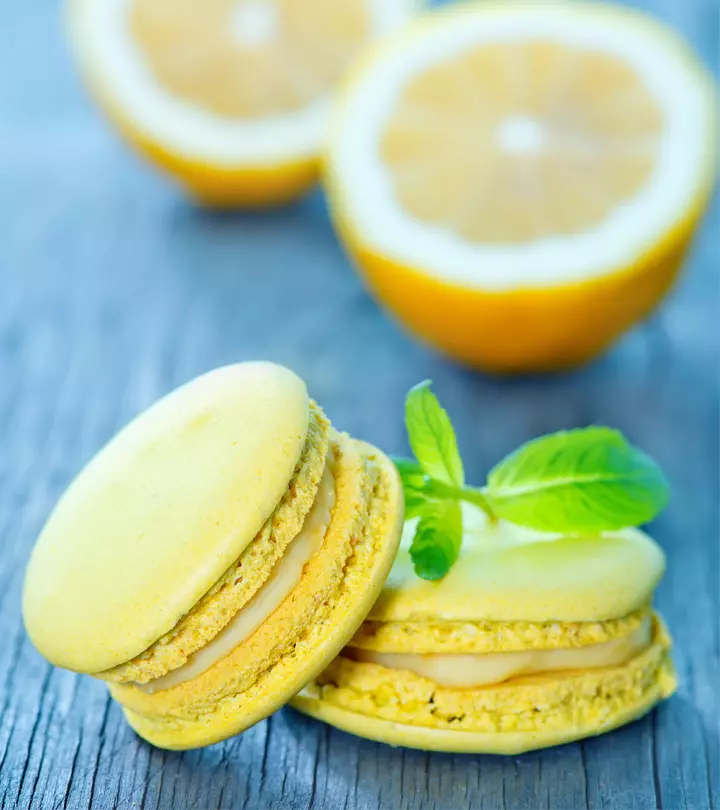
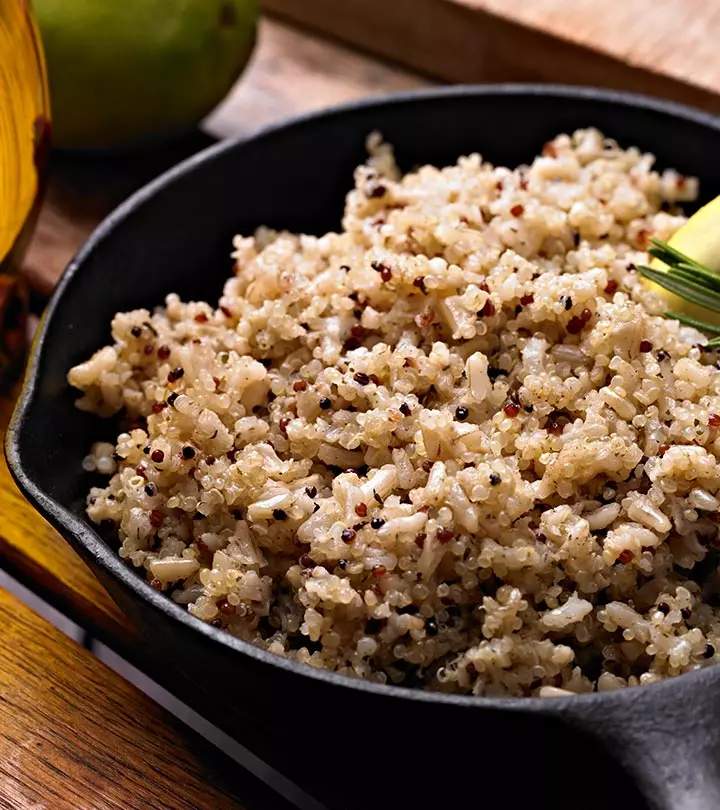

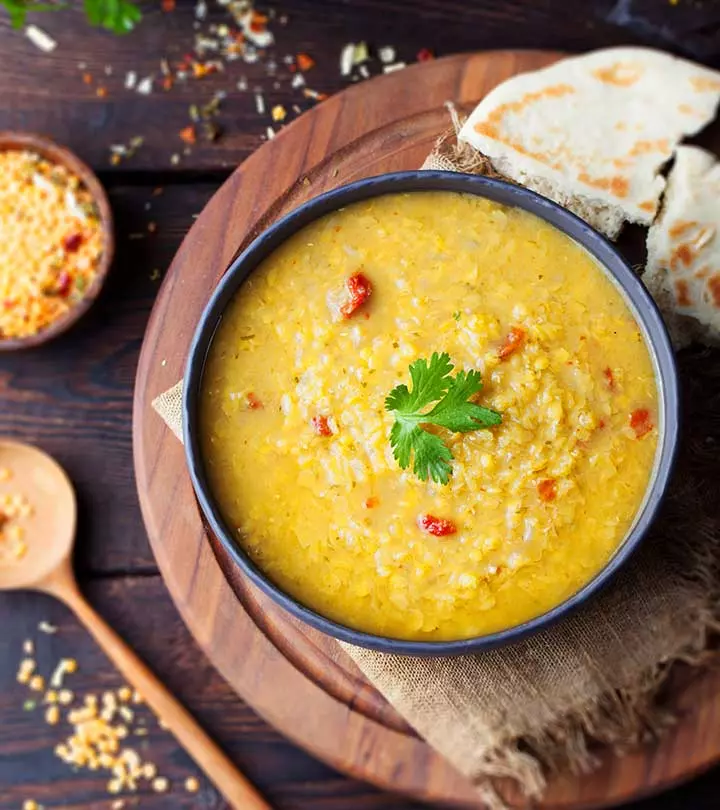
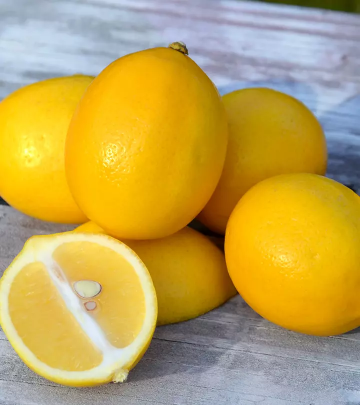
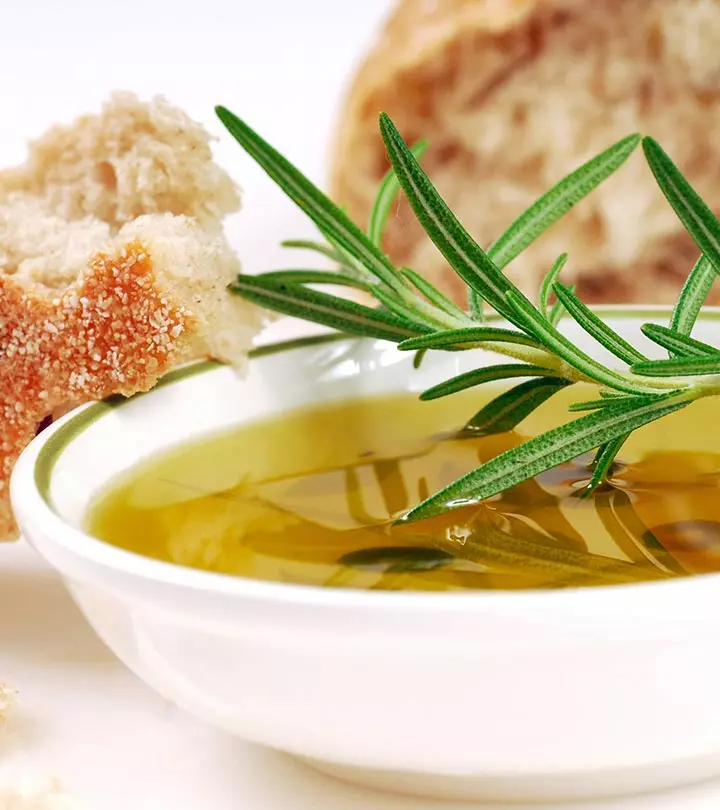

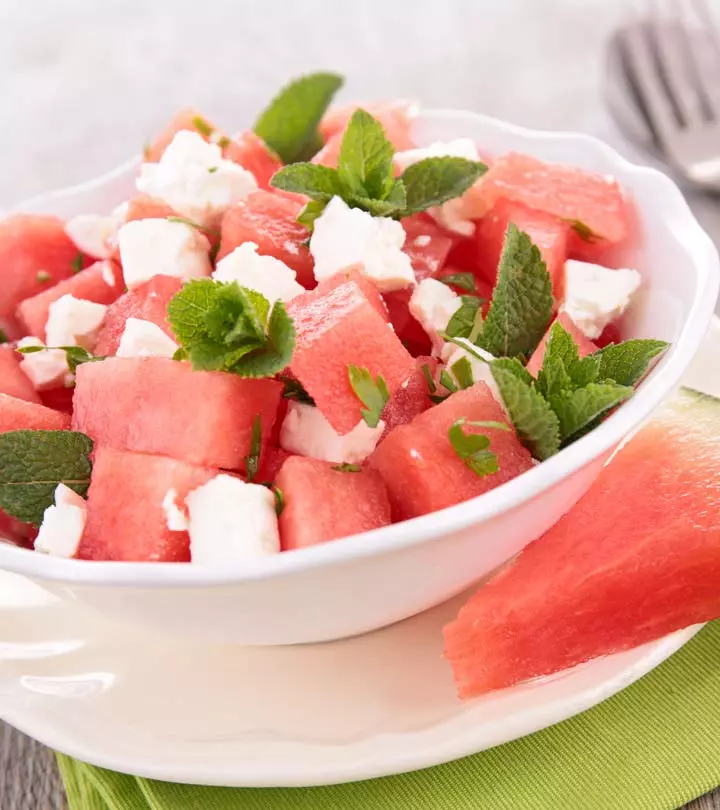
Community Experiences
Join the conversation and become a part of our empowering community! Share your stories, experiences, and insights to connect with other beauty, lifestyle, and health enthusiasts.